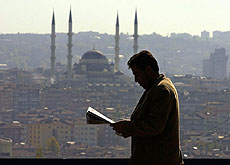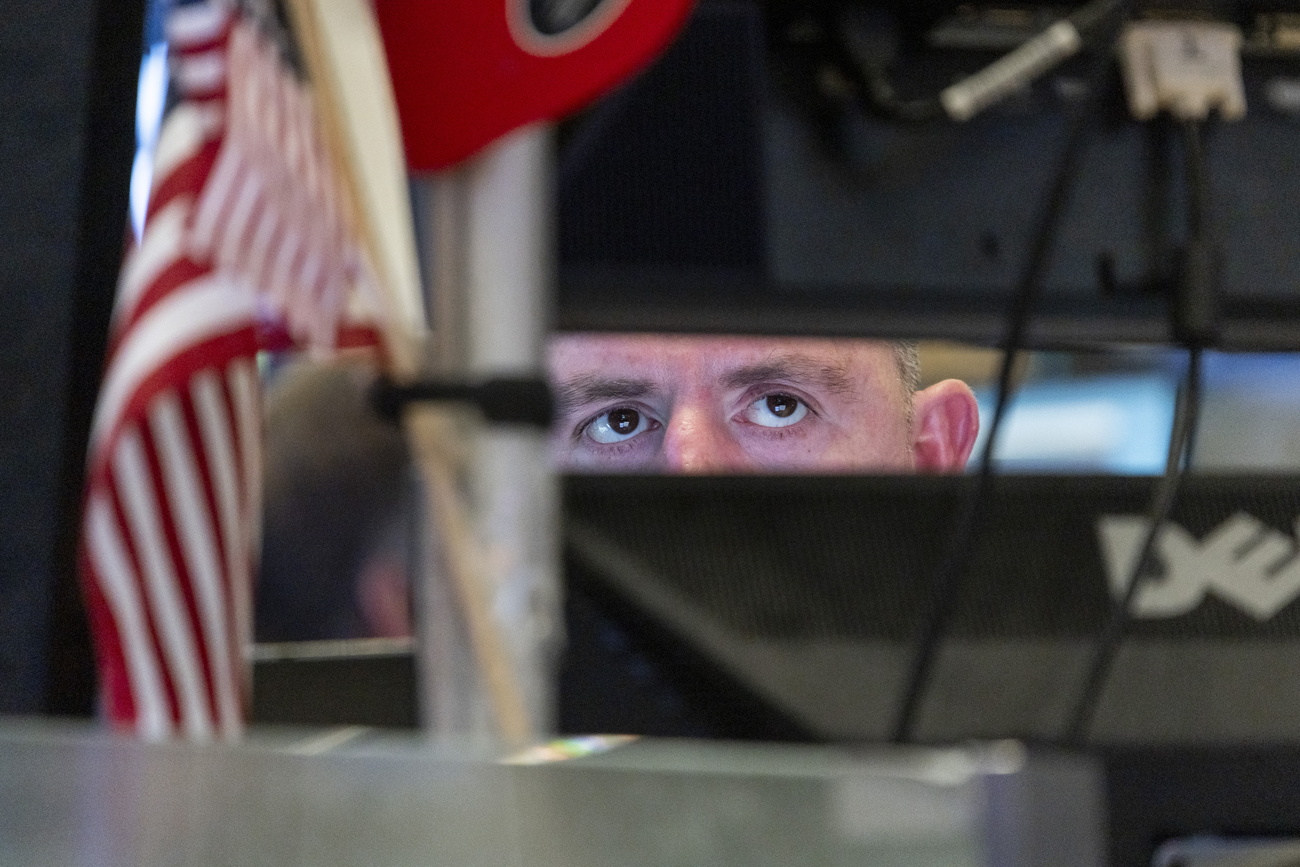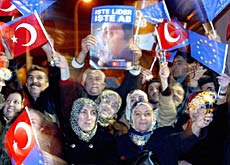Calmy-Rey faces delicate mission in Turkey

Foreign Minister Micheline Calmy-Rey is travelling to Turkey on Tuesday, 18 months after a diplomatic spat put paid to a previous trip.
Ankara withdrew its invitation at the last minute after a cantonal parliament voted to recognise the 1915 slaughter of hundreds of thousands of Armenians as genocide.
Three months later – in December 2003 – a similar vote in the House of Representatives reached the same conclusion, drawing fresh condemnation from Turkey.
Armenians say around 1.8 million people were killed; Turkey disputes this, putting the figure closer to 200,000.
The Turkish foreign ministry warned parliamentarians that the decision could have “negative consequences” on relations between the two countries.
The Swiss foreign minister is due to holds talks with her Turkish counterpart, Abdullah Gül, on a wide range of issues.
Roberto Balzaretti, Calmy-Rey’s diplomatic adviser, told swissinfo that discussions would cover mutual concerns such as “human rights, minorities and economic relations”.
Asked whether Calmy-Rey would raise the Armenian question, Balzaretti said it would be difficult “to avoid issues that have caused problems in the past”.
Tread gently
Françoise Saudan, a member of the parliamentary foreign affairs committee, who visited Turkey in August, cautioned that the Swiss foreign minister would need to tread gently.
She said the genocide remained a touchy subject for Turkey, which had not faced up to its past in the same way Switzerland addressed its Second World War past.
But Jean-Jacques de Dardel, head of international security policy at the Swiss foreign ministry, said this week’s visit was not about resurrecting past disagreements.
“[She] is not going to Ankara to rekindle tensions, but to strengthen relations between Switzerland and Turkey,” he said.
The issue of Turkish membership of the European Union is also likely to feature during talks between both foreign ministers.
Calmy-Rey made it clear in December that the Swiss stood to benefit should Turkey join the bloc.
Switzerland, which is not a member of the EU, has signed a series of bilateral agreements with Brussels covering areas including trade.
Iraq, which borders Turkey, and the Middle East are also expected to be on the agenda.
Kurdish question
On the second day of her visit Calmy-Rey is due in the city of Diyarbakir in the mainly Kurdish southeast of the country, where she is expected to meet local representatives and non-governmental organisations.
This section of the trip was viewed in poor light by Ankara in 2003. Shortly after the invitation was withdrawn, the Turkish authorities accused Calmy-Rey of meeting a member of a banned Kurdish organisation in Lausanne.
The Federal Prosecutor’s Office later launched an investigation to find out whether the Swiss foreign minister had been spied on by Turkey’s secret service.
On the final day of her trip, Calmy-Rey is due to give an address to the Swiss and Turkish business leaders in Istanbul.
“Turkey is Switzerland’s most important business partner in the Middle East. Around 40 Swiss firms move there every year,” said Balzaretti.
Swiss exports to Turkey totalled SFr1.9 billion ($1.6 billion) in 2004 – up 17 per cent on the previous year.
Last week the government lifted restrictions on arms exports to Turkey, which were imposed in 1992 during a Turkish crackdown against the Kurds.
swissinfo with agencies
Armenians say 1.8 million of their people were killed or deported from 1915-18 by the Ottoman Empire.
Turkey disputes this, putting the figure closer to 200,000.
The treaty marking the birth of modern Turkey was signed in Lausanne on July 24, 1923.

In compliance with the JTI standards
More: SWI swissinfo.ch certified by the Journalism Trust Initiative











You can find an overview of ongoing debates with our journalists here . Please join us!
If you want to start a conversation about a topic raised in this article or want to report factual errors, email us at english@swissinfo.ch.